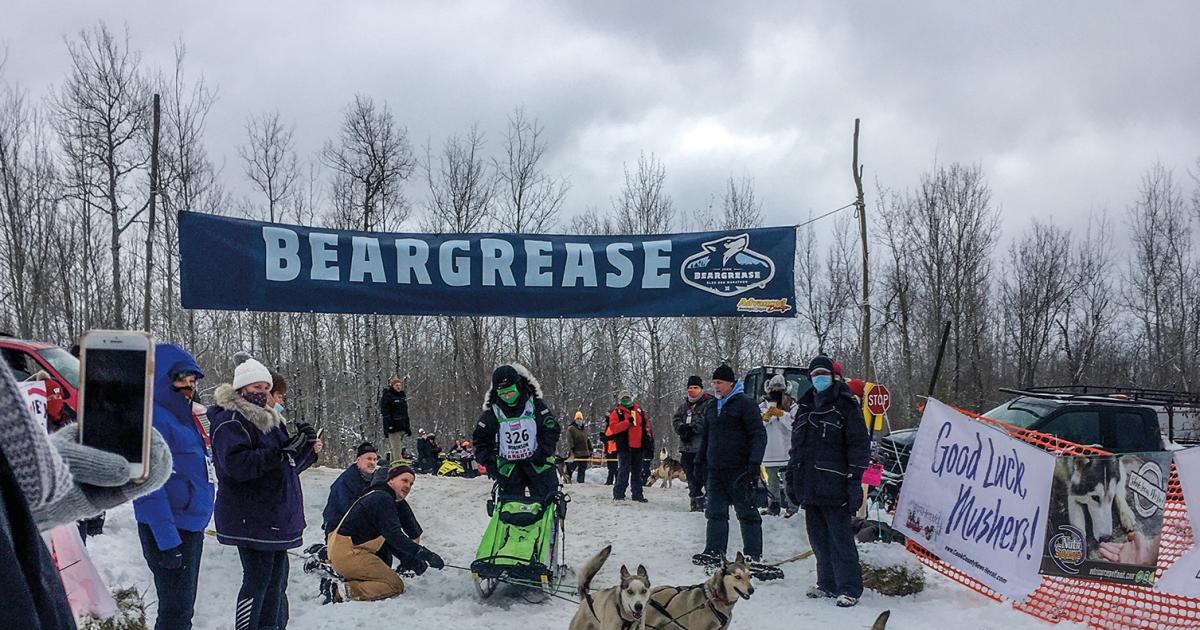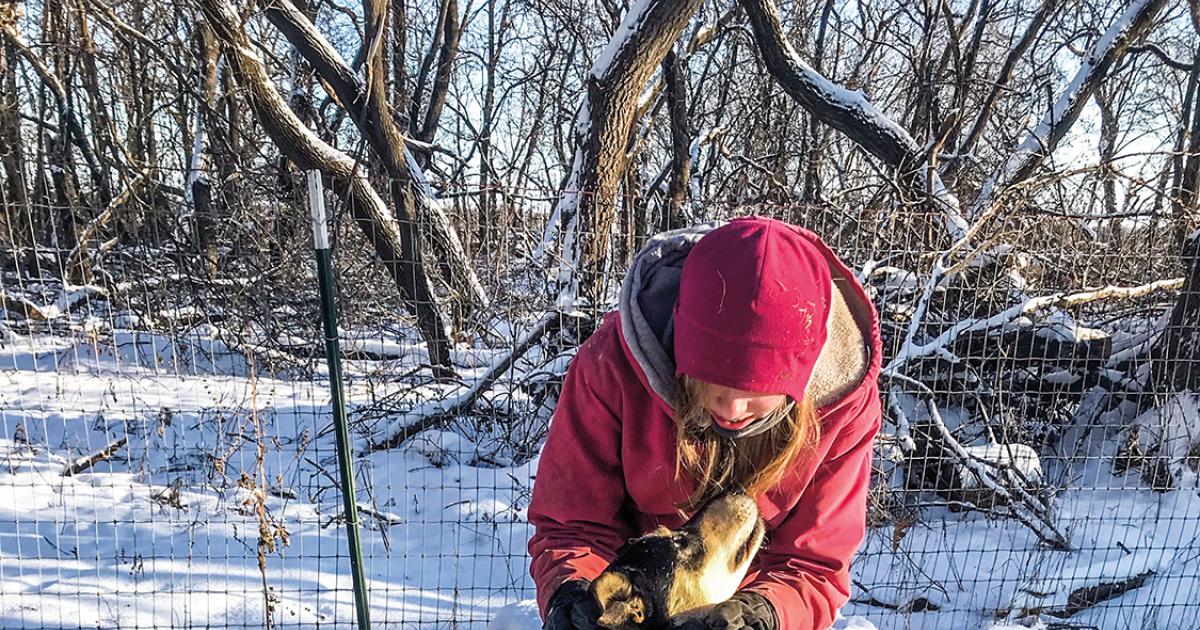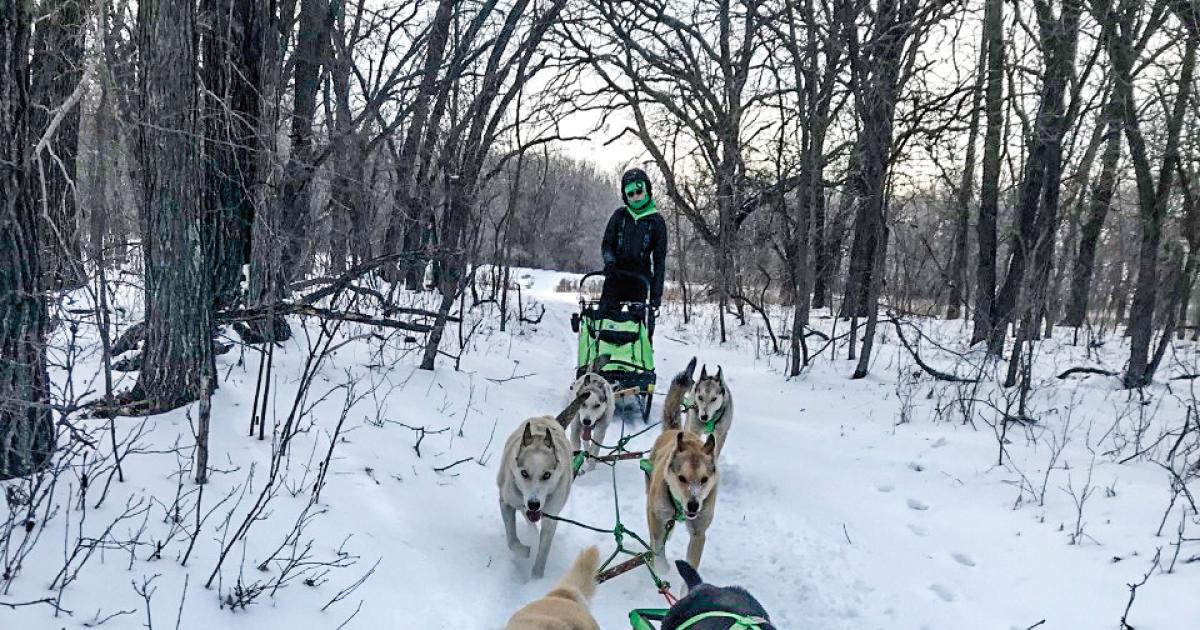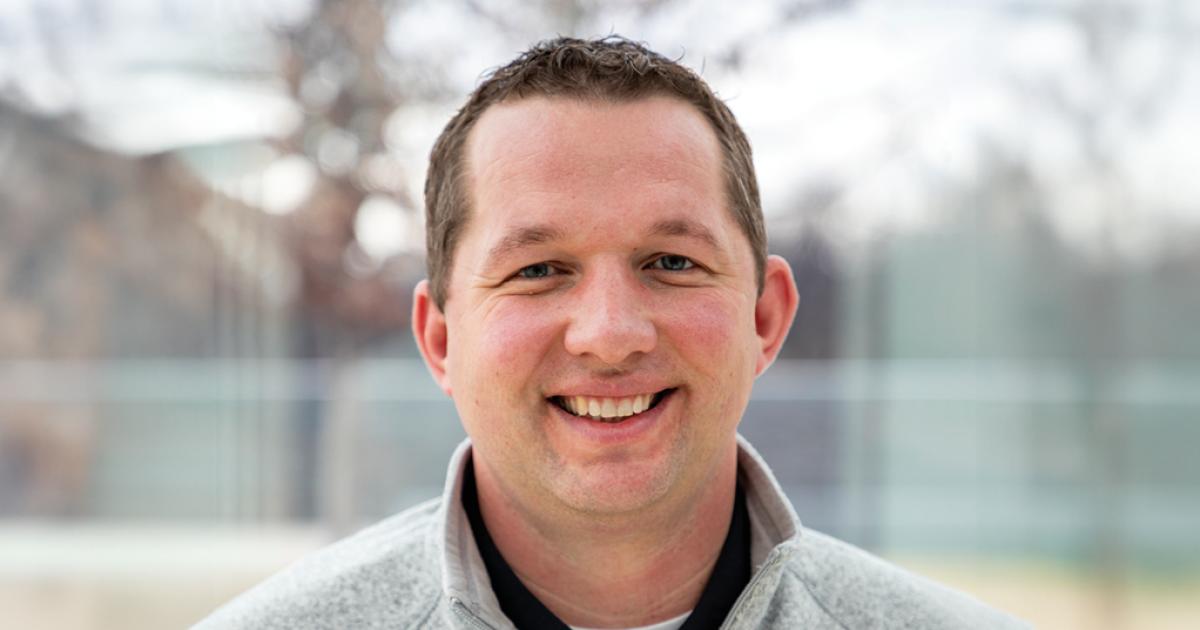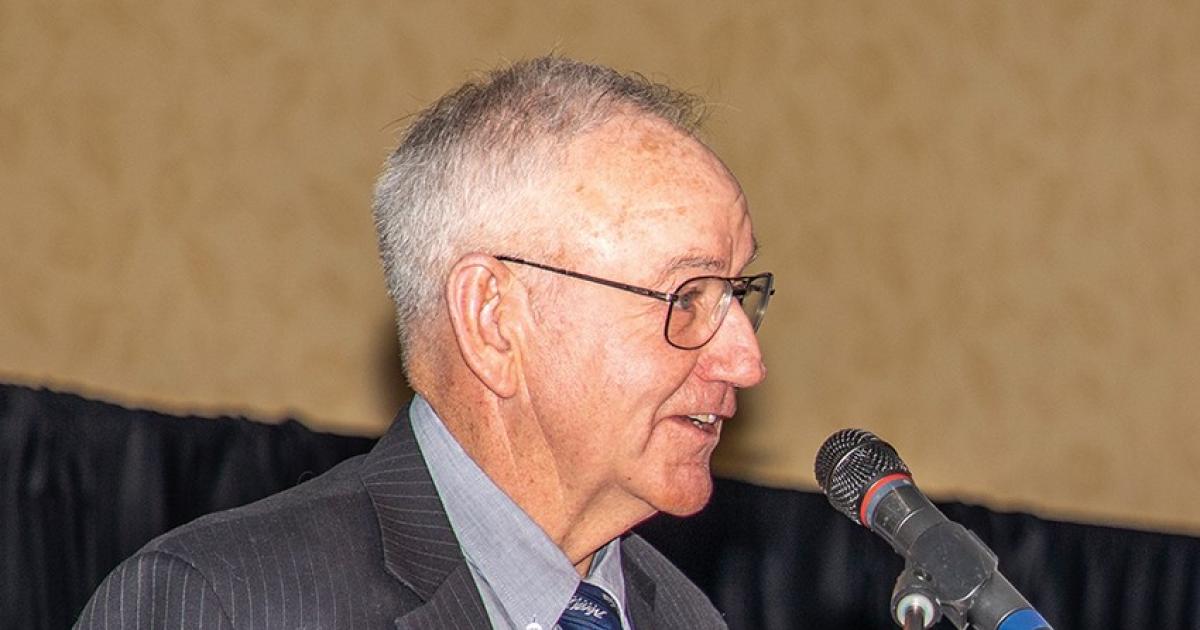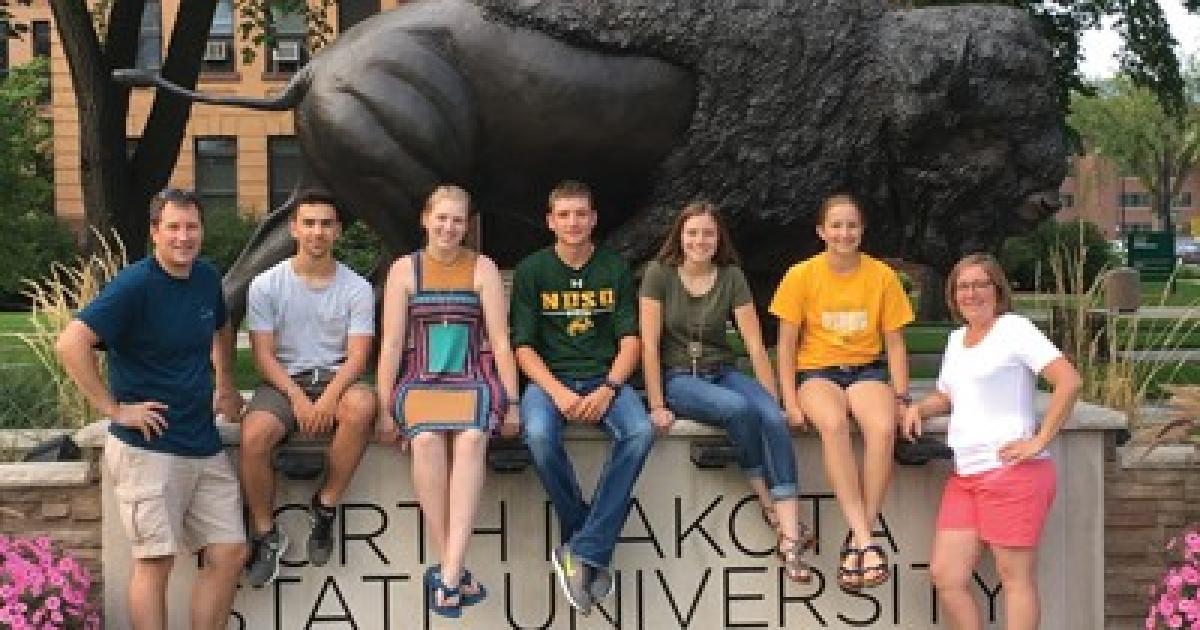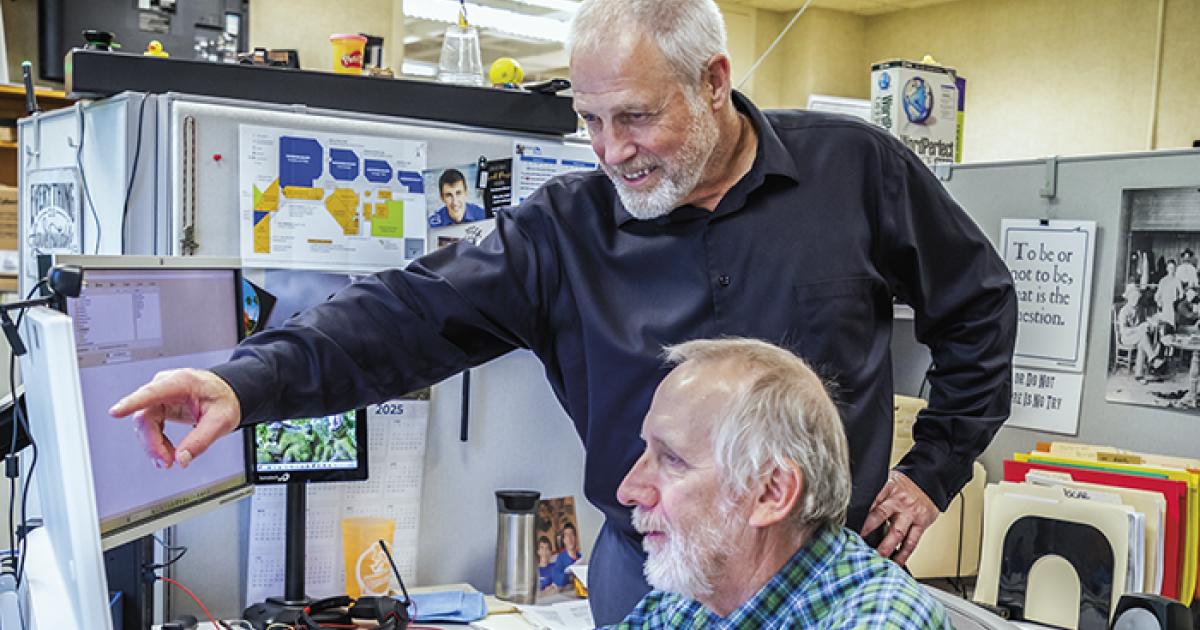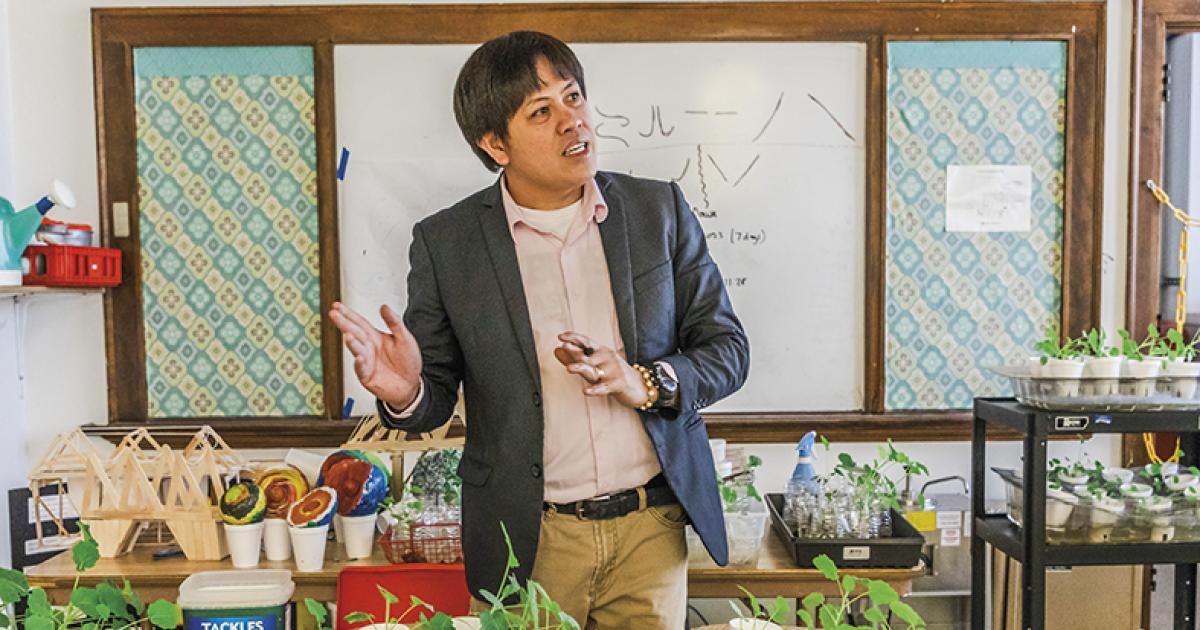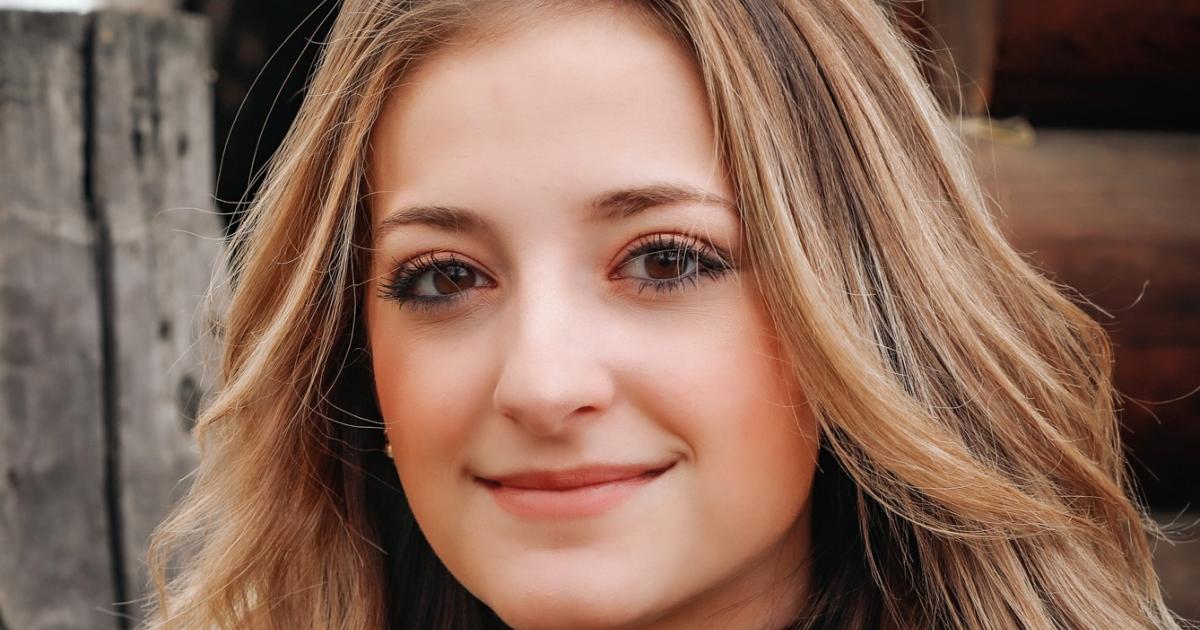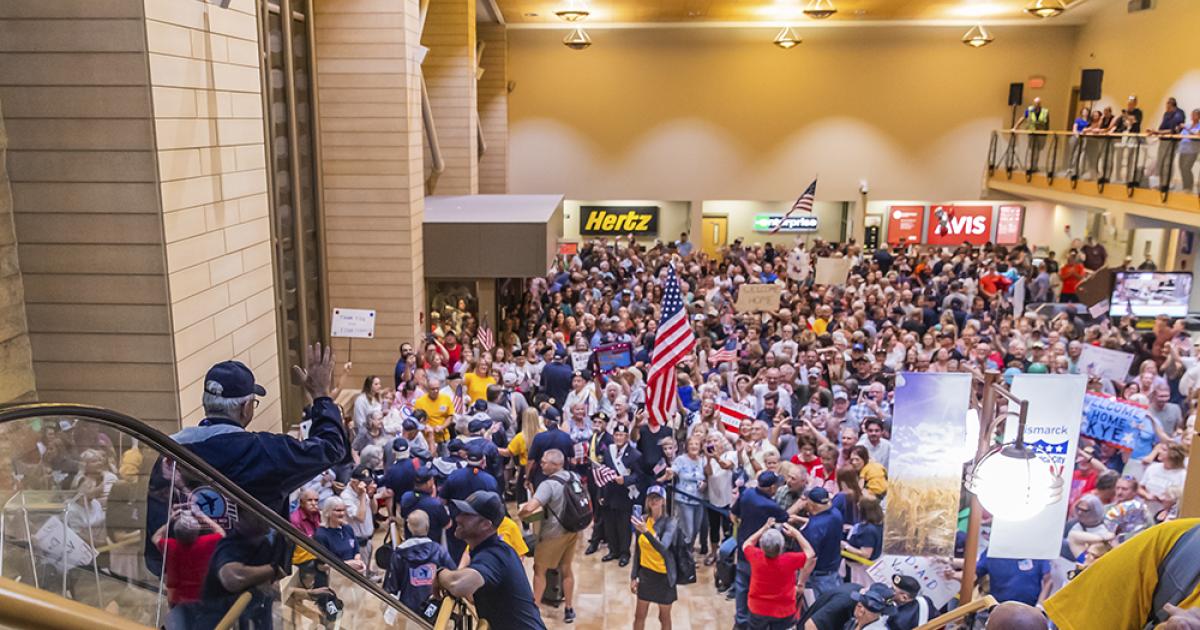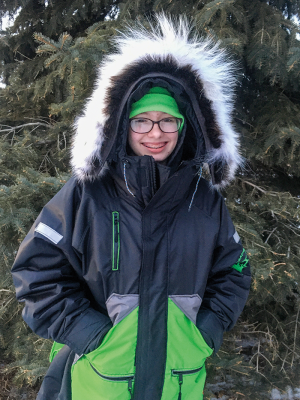
Courtesy Photos
Few people set a goal for eight years in the future, especially when they’re only 6 years old. But North Dakota musher Eva Robinson isn't few people.
“It started when I was 6 years old,” the homeschooled teenager says. “I decided I wanted to run the Junior Iditarod Sled Dog Race when I was 14, the first year I was eligible.”
It’s not surprising, really, considering she has ridden dogsleds since she could walk. “At that early age, I grew up mushing with the family. We went out, set up tents, camped, made a campfire and drank hot chocolate,” she says.
And mushed. Yet when kindergartner Eva told her parents she wanted to mush in the Junior Iditarod, her father, Justin, says, “I’m not going to lie. We blew her off.”
Justin and his wife, Katt, members of Nodak Electric Cooperative, figured it was a passing fancy, though they unwittingly encouraged their daughter at 8 years old.
“We were mushing as a family, and Dad said, ‘You’re going to take a sled and drive the Malamutes home.’ That was my first time alone on the sled. He gave me the one male dog and he took four other dogs, and we raced home,” Eva says.
She remembers climbing a big hill, and telling her mother she beat Daddy home.
“I remember feeling really triumphant that I beat him home with one dog and he had four!” Eva says.
Then Eva asked what she would have to do to race in the Junior Iditarod in Alaska, which is “a race we follow like others follow the Super Bowl,” Justin says.
Make $8,000, they said, $1,000 a year. That didn’t discourage Eva. She started a business selling dog treats, which Katt named “Eva Diva Puppy Snacks.”
“It’s just a name, because I’m not really a diva,” Eva says with a laugh. The puppy snacks come in flavors of chicken, beef, peanut butter, pumpkin and a mixture.
Talk about success! The first year, she met her $1,000 goal.
“I purchased my first Alaskan Husky that same year, and have been growing my team since, with 16 dogs in my kennel. I’m excited about the future and reaching my mushing goals,” she says.
Justin agrees the business has been successful.
“With her sales, donations and sponsorships, she has pretty much reached the $1,000 each year since,” he says. “As a parent, that’s really rewarding and satisfying to see your youngster come up with a goal and stick with it year-after-year.”
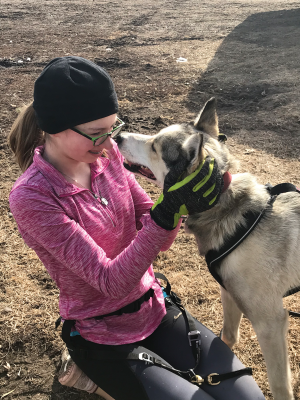
Running the race
Meanwhile, Eva continued to develop her dogs and her skills, some days running 6 miles at 6 a.m. for cross-country practice, and 20 miles on and off the sled at 6 p.m. with the dogs.
“The hardest part is learning your dogs, so you know when to go and when to rest,” she says.
Three years ago, she started mushing dogsled races, the Apostle Island Sled Dog Race and the Mid Minnesota 150. All of this prepared her for her late January jaunt in the 120-mile Junior John Beargrease Sled Dog Race.
“I was very excited for the Beargrease. It’s a major steppingstone before the 150-mile Junior Iditarod,” Eva, now 15, says. But she worried the lack of snow around Cavalier limited her progress. “We’ve had to travel four to six hours to get good runs in,” Eva says, “to the Chippewa National Forest and Superior National Forest in Minnesota.”
The most difficult part of the race is the start, she says. “The dogs are so ready to go, and want to go so badly, but they are shy and scared of people, and there are more people around that distract them, until we get the sled going,” she says.
“The race was really grueling,” Eva says. During the race, she keeps her eyes on her dogs to make sure they aren’t getting tired. She might wonder what mile she is on, or try to identify certain sounds along the route. “I also wonder what I’m going to eat at the next checkpoint,” she laughs.
The first checkpoint after the start north of Duluth, Minn., was 40 miles away at Two Harbors, where the dogs were given fresh straw, massaged by handlers Justin and Katt, rubbed with ointment, checked for sore spots, then rested and given hot kibble stew. An hour later, veterinarians checked the dogs, using Eva’s required before-race dog information book, and added information as needed. Meanwhile, Eva grabbed an hour nap, as the entire race lasts 22 hours, including eight hours total of mandatory stops at two checkpoints.
“At the Finland checkpoint, we saw that she looked pretty tired. But she looked at us and said, ‘I’m going to finish the race.' It was part of her dream, and I could see the determination on her face. It was just awesome,” Justin says.
During the 120 miles, Eva sometimes rode on the sled, ran alongside up hills or pushed with one foot. At the end of 14 hours of dogsledding, Eva had mixed feelings.
“It was grueling, and I wanted it to be over, yet I didn’t want it to end. My shoulders were sore, the arches of my feet ached and I was ready to sleep! I felt really scatterbrained. My mind wandered and I was thankful my parents were there to help me at each checkpoint and at the finish. People might expect a triumphant moment after the race, but for me it was, ‘What can I do next?’ I couldn’t comprehend what I had just done because we’d been training for so long,” she says.
Learning from the dogs
Eva says she’s learned a lot about herself and her family through mushing. “I learned life has good and bad things. I learned that I’ve started to adopt dog personality traits, becoming more patient, more positive and living in the moment, and having more joy,” she says.
The dogs enjoy many things, Eva says. “They love the straw I add for warmth to their houses, playing with it and rolling in it. They love to play with frozen fish fillet treats and shake them around.”
Justin has learned from the dogs, too, including consistency. “They want to know what’s going on. Dogs live in the moment and have no regrets. They’ve helped me look forward and not overanalyze the past,” Justin says.
Katt agrees. “When I might stress about things in our house, I’ll remember, ‘The dogs don’t care.’ Things aren’t worth stressing over. Let’s appreciate right now. Have a good time and get through it. Forward motion.”
And both parents realize the gift they have in their daughter. “We’re just amazed at our daughter’s determination,” Justin says.
Eva’s friends figure running dogsleds is just who she is. “The friends I’ve grown up around Cavalier will ask, ‘When’s your next race?’ and are supportive.”
When the Robinsons race in different states, Justin says other mushers might not remember their names. “But they remember where we’re from. ‘Oh, there’s North Dakota!’ or ‘North Dakota is back!’ We take a great deal of pride in being from North Dakota, and showing that we keep a positive attitude.”
“Just dream big, because the sky’s the limit, but try to stay on the ground,” Eva says. “Stay humble, and you can reach wherever you want to go, even if people tell you that you can’t get there.”
Bill Vossler is a freelance writer and author, based in Rockville, Minn.
Eva will be racing the Junior Iditarod in February 2022. Follow her journey on Facebook, Instagram or online at https://divadogsracing.com(link is external).![]() evadivapuppysnacks
evadivapuppysnacks![]() divadogsracing
divadogsracing


